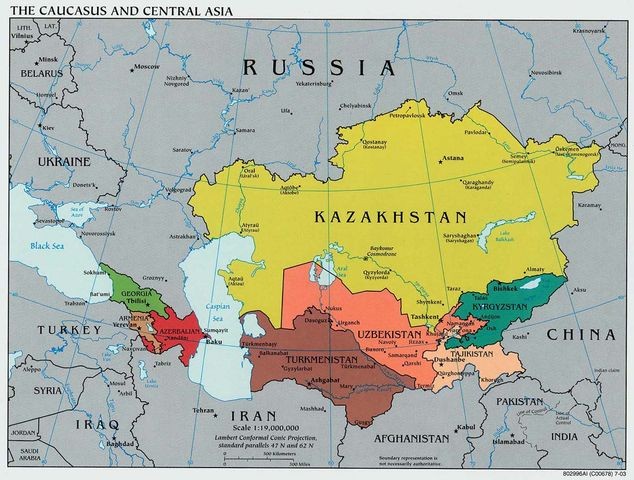BISHKEK (TCA) — Recently an Italian delegation was in Kazakhstan to find ways and means to cooperate with Kazakh companies to produce in Kazakhstan with Italy as the main partner for the export to Russia. A similar trend is in process in Kyrgyzstan, while European and Turkish companies are already very active in developing new joint ventures with manufacturing and processing plants in Russia, Belarus and other countries. The objective is everywhere the same — a continuation of business relations and trade with the important market of Russia. European exporters are fully aware of the damage they have been suffering in the last 18 months following the European sanctions and Russian counter sanctions, and they are trying to keep the business relations built during many years of cooperation with the Russian market.
On July 31, the European Union is supposed to decide whether to continue or terminate the sanctions imposed on Russia in 2014. It is not a surprise that Moscow is already working with several European partners, such as Hungary and Greece, to support the lifting of the sanctions, but the sanctions will probably not be lifted or eased this July, although there may be a chance that some change towards easing the sanctions may take place by the end of the year.
If Russia is certainly interested in the lifting of the sanctions, what is going on in Central Asia, Belarus and other countries that are members of the Eurasian Economic Union, as well as in countries that are sympathetic toward Russia, shows a scenario that will never bring the business relations back to the same level as before. Now Russia has become very active in attracting mostly European companies to invest in Russia and other EEU countries for export to Russia, a call for producing here with Europe. This involves providing additional benefits, easy financing and a series of advantages in using local raw materials. In Kyrgyzstan, for example, the Russian-Kyrgyz Development Fund, with an initial cash injection from Russia of $1.5 billion, is considering in a very positive way any project that has the potentiality to export to Russia. In this regard there is no doubt that technological know-how provided by a foreign partner in a specific business will represent an advantage for obtaining financing. Manufacturing in Kyrgyzstan with Italian participation would benefit three parties — the Italian exporter, the local manufacturer, and the Russian buyers. It is an overall win-win situation that cannot be underestimated.
Central Asia and Russian companies clearly see the advantages of European technological contribution and the possibility to upgrade the quality of their production to levels that so far have been far from being achieved. This will particularly benefit companies in the agro processing sector where Central Asia and Russia have a large potential, but the trend does not exclude other sectors such as agricultural equipment, furniture, garment and fashion products.
The present situation is of particular interest to those Italian and European companies that were exporting to Russia and that due to the sanctions have considerably reduced their export and now face the risk of losing such important market. Producing in Kyrgyzstan or Kazakhstan WITH Italy makes sense from the commercial point of view, since the Italians or any other foreign company will keep the market and the business relations built over a long period of time while using abundant raw materials at competitive prices. On the other hand, manufacturing in Central Asia will result in lower production and transport costs, thus benefiting the Russian buyer due to abolished duties and other taxes between the member states of the Eurasian Economic Union.
Today there are still too many conflicts and disagreements between Russia and the West, not only over Ukraine and Syria but also the Crimea and Nagorno Karabakh. If diplomatic relations may smooth the differences, the business in food products and other sectors will never return to the previous level and the interest to be secure from any possible new sanctions caused by political differences will certainly prevail.
The above clearly projects a new scenario for the future. If and when the European sanctions are removed and the counter sanctions from Russia against Europe lifted, the companies that have had the vision and convenience to produce in Central Asia will continue in their operation and will certainly not return to higher costs and the risk of suffering from new possible sanctions.

